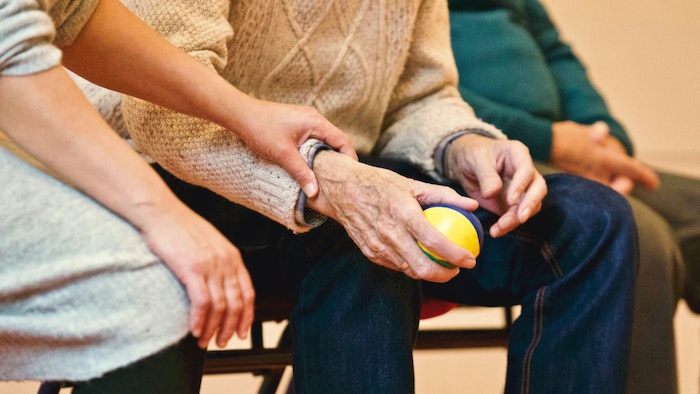The government is extending whole care home Covid-19 testing to all adult care homes to include specialist learning disability and mental health units.
Ministers also announced a new Covid-19 social care taskforce, with representatives from across government and the care sector.
The new taskforce will help oversee the implementation of the government’s social care action plan and care home support package to help end transmission in the community and advise on a plan to support the sector through the next year.
Health and social care secretary, Matt Hancock said: “All remaining adult care homes in England will be able to order the whole care home testing service for residents and staff. This service will benefit residents and staff in over 6,000 more care homes.
“It will mean that right across the care home sector everyone will have the certainty and confidence of a high quality coronavirus test, whether symptomatic or not, certainty about whether or not they’re carrying the virus and confidence that they are doing the right thing both to protect themselves and others.
“During the first phase care homes for the over-65s and those caring for people with dementia were prioritised for whole care home testing to target those with the greatest need. The government is now able to offer testing to every adult care home in England, including specialist learning disability and mental health care homes.”
The Social Care Sector COVID-19 support taskforce which will oversee delivery of infection control measures as set out by the care home support package, backed by £600 million from the government, delivery of testing programmes and effective deployment of the workforce.
Former president of Association of Directors of Adult Social Services and director of adult social care at the DHSC, David Pearson, has been appointed as independent chair.
Outlining the taskforce’s remit, Pearson said: “The social care sector is on the frontline of our coronavirus response. This taskforce will support the service by overseeing the delivery of the Social Care Action Plan and the Care Homes Intensive Support Package.
“This will play an important part in ensuring we are doing everything we can to reduce the risk of transmission of COVID-19 in the sector, both for those who rely on care and support and the social care workforce.”
Vic Rayner, executive director of the National Care Forum said the move to extend testing was “very positive”.
“Testing of all those receiving care and the staff delivering it has been recognised as an absolute priority. It is very positive the government is today moving forward with plans to extend the testing across all care homes, and it is vital that we set out a timeline to ensure that everyone who receives care gets access to regular and repeat testing as it is proving to be an absolutely essential tool in the fight against COVID-19,” she said.
Rayner also welcomed the taskforce announcement.
“This taskforce will provide a real opportunity for all partners to work together to ensure a coordinated focus on the core essential of managing this virus, and bring energy and attention to the way in which Covid is impacting social care now – and critically in planning and preparation for the future.”
Kate Terroni, chief inspector of adult social care at the Care Quality Commission (CQC) said the move would be particularly helpful in the learning disability sector.
“Organisations including the Care Provider Alliance and Mencap have been calling for testing of people with a learning disability, and last week CQC released data showing not only a significant increase in deaths of people with a learning disability, but that the impact of COVID-19 on this group is being felt at a younger age range than in the wider population. We were clear that this data should influence decisions on prioritisation of testing of people of working age with a learning disability,” she said.
Terroni added that the CQC is stepping up physical inspections of social care providers.
“As we continue to increase the number of physical inspections we’re undertaking, our inspectors remain in regular contact with adult social care providers to offer support, advice and information to help them deliver safe care – and I urge staff to contact CQC directly if they experience any barriers that impact on the delivery of this care.”
Care home providers are now able to access an online portal to order tests for their residents or staff regardless of symptoms and the DHSC is contacting all care homes to highlight this service and encourage tests to be ordered.
Test results for residents will be communicated to the care home managers.





